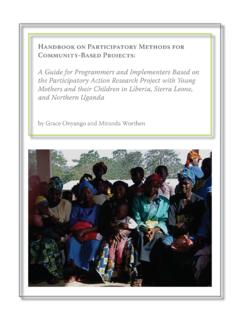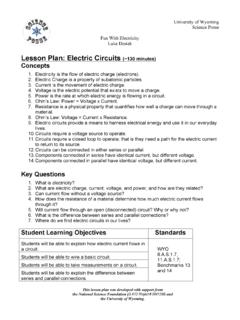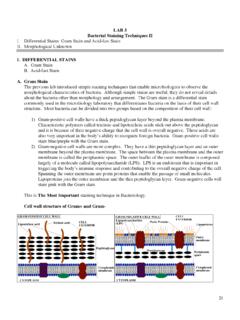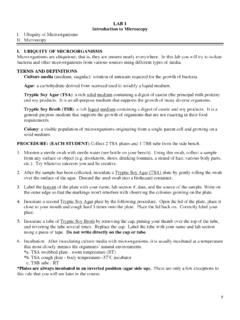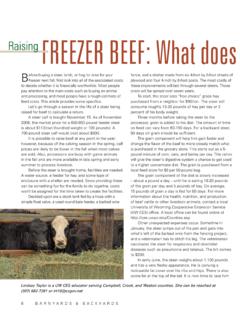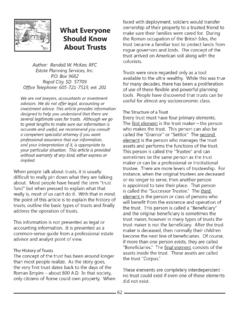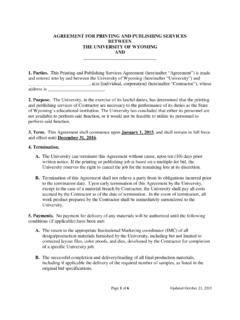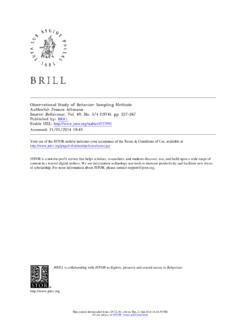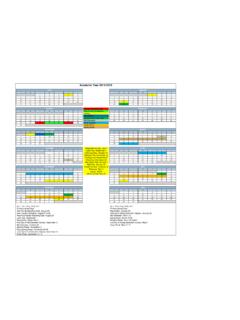Transcription of Steps-to-Distance Conversion Chart
1 Step Conversions Increasing frequency and duration of physical activity for improved health is the ultimate goal of a walking program. Some walking program participants may find distances (miles) covered to be fun and motivating. For distance-based walking programs where people track progress to a destination, we recommend using an average of 2,000 steps per mile for simplicity. However, some people prefer a more accurate way to determine distances and or a way to count other non-walking physical activit ies. In these cases, the charts below may be helpful. Steps-to-Distance Conversion Chart Below is an estimated steps-to -distance Conversion . While distance varies for each individual depending on stride length, this Chart uses an average 32 stride length. STEPS MILES KM STEPS MILES KM 500.
2 25 .40 5500 1000 .50 .80 6000 1500 .75 6500 2000 7000 2500 7500 3000 8000 3500 8500 4000 9000 4500 9500 5000 10000 Source: 10-K-A-Day Walking Incentives Pedometer Tips, Los Alamos National Laboratory Wellness Center, Accessed March 15, 2004. 2 Stride Length Conversions The actual number of steps required for an individual to walk a mile varies by stride length. Stride length varies person to person and even with walking speed. To obtain an average stride length for an individual, try the water dance. Find a sidewalk and puddle of water. Or make a small puddle by pouring water on the sidewalk. Get the bottom of your shoes wet. Walk 8 to 10 paces away from the puddle at a normal to brisk pace. While the footprints are still wet, measure from heel strike of one foot to the heel strike of the other foot.
3 Take 3 to 4 measurements and average them. Converting Footsteps to Miles Step Length Number of Footsteps to Walk a Mile 18 3520 21 3017 24 2640 27 2347 30 2112 33 1920 36 1760 39 1625 Source: Sweetgall, Robert; Pedometer Walking; Clayton, Missouri: Creative Walking, Inc. 2001. Activity Conversions If you are adding up steps and miles to better health, include a variety of activities in addition to walking. Below is a Conversion Chart from Shape Up Across Colorado based on Dr. Gunnar Borg s perceived exertion (RPE) scales. The intensity of the activity is key to determining into which category it will fall. Lifestyle/Light Physical Activity: 30 minutes = 1 mile baseball, canoeing, croquet, yard work, fishing, golf (with cart), gymnastics, table tennis (ping-pong), volleyball (recreational), gardening, housework 3 Moderate Intensity Physical Activity: 15 minutes = 1 mile aerobic dancing, badminton, bowling, bicycling (leisure), calisthenics, canoeing (for speed), football, golf (no cart), hiking, horseback riding (general), jogging, rollerblading, skating (recreational), downhill skiing, tennis, walking (normal pace) Vigorous Intensity Physical Activity.
4 15 minutes = 2 miles aerobic exercise, basketball, bicycling (racing), circuit weight training, hiking (40 lb pack), horseback riding (galloping, jumping), ice/field hockey, rope skipping, racquet/paddle/handball, cross-country running, cross- country skiing, shoveling snow, speed skating, snowshoeing, soccer, squash, volleyball (power), walking (race), wheelchair (1 mile = 3 miles walking), stationary bicycle, stair stepping, chopping wood Note: You can find many different ways to convert physical activities to steps. What is important is to find one Conversion method and focus on the increase over time. Source: Shape Up Across Colorado Activity Chart , 3/29/04. WIN the Rockies is a community-based research, intervention and outreach project to improve health of residents in Idaho, Montana and Wyoming.
5 Supported by award 0004499 through IFAFS (Initiative for Future Agriculture and Food Systems) Competitive Grants Program/USDA. The University of Wyoming and the United States Department of Agriculture cooperate. The University is an equal opportunity/affirmative action institution. 1111 WIN Steps Wellness IN the Rockies Dept 3354, 1000 E. University Ave University of Wyoming Laramie, WY 82071.
